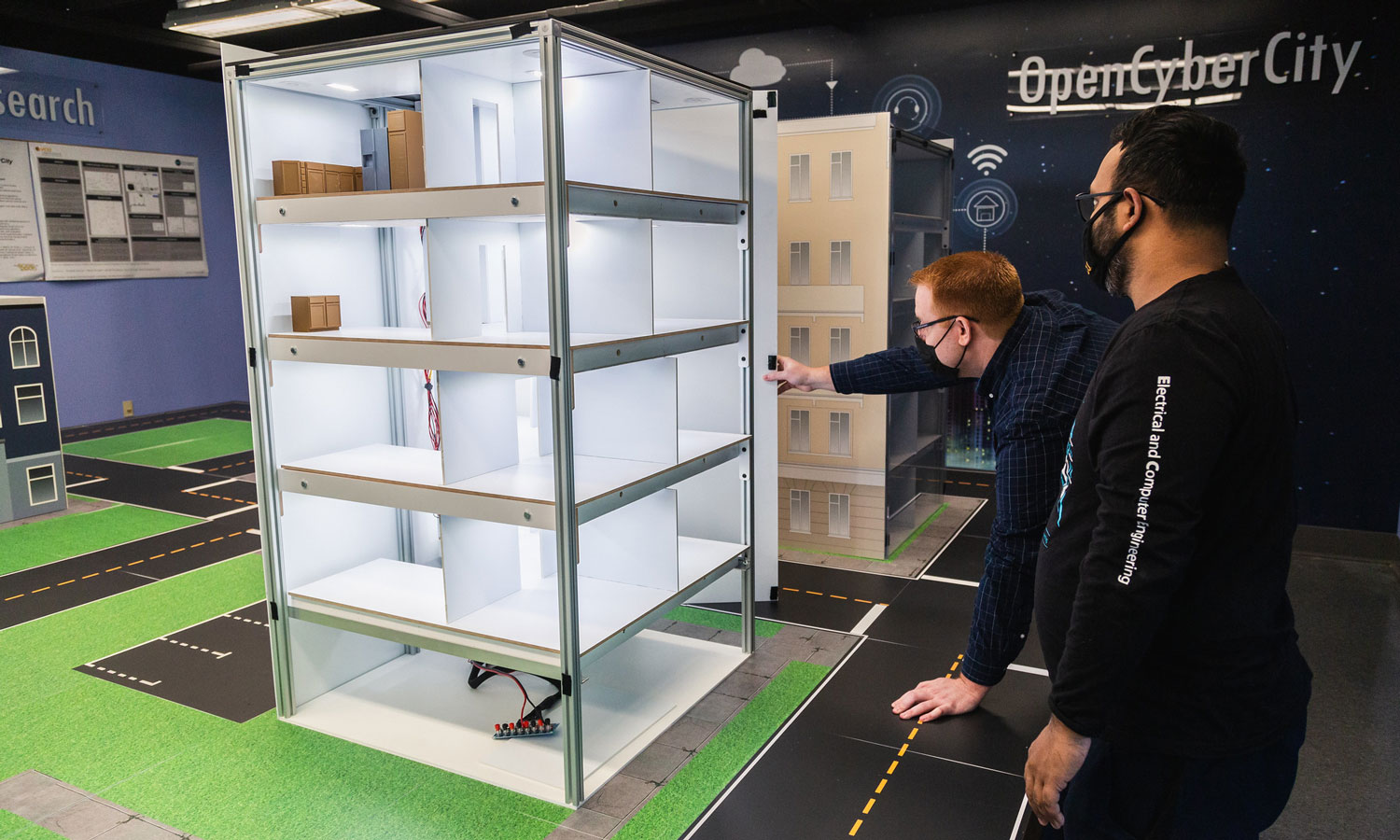By Michele McDonald, Commonwealth Cyber Initiative
The Commonwealth Cyber Initiative (CCI) has aided in funding three new testbeds at Virginia Commonwealth University’s College of Engineering to help researchers and industry partners analyze the security of medical devices, NextG applications, and smart city operations.
The testbeds were developed under the leadership of Erdem Topsakal, Ph.D., director of the CCI Central Virginia regional node and professor and chair of VCU’s Department of Electrical and Computer Engineering.
“Cybersecurity must be woven into the devices that connect our lives from hospital beds to the cars we drive,” said Luiz DaSilva, CCI executive director. “The new testbeds at VCU add to the CCI network’s capability to evaluate technology and applications from industry and government partners before they’re commonly used. The testbeds also will provide meaningful experiential learning opportunities for students to prepare them for a career in cybersecurity.”
The new testbeds include:
- The NextG Testbed, which provides radio silence allowing for 5G experiments in an isolated environment.
- The Medical Device Security Testbed, which allows testing of commercial medical devices to locate and provide suggestions for the mitigation of vulnerabilities.
- The OpenCyberCity Testbed, which provides a realistic, small-scale cityscape in which to run experiments related to smart cities and autonomous vehicles.
"These testbeds will benefit researchers - both faculty and students - as well as the commonwealth at large,” Topsakal said. “They help support and inspire entrepreneurship and spin-off companies that will bolster CCI's goal of supporting workforce development throughout the commonwealth."
A 1:12 scale model, the OpenCyberCity is a smart city testbed where students can learn about several aspects of modern smart cities. The testbed consists of data collection and processing units, database management, distributed performance management algorithms, and real-time data visualization, said Sherif Abdelwahed, Ph.D. project director and VCU electrical and computer engineering professor.
“The testbed provides a near real-life platform to allow students to learn about the unique features of smart cities and explore the supporting technologies,” Abdelwahed said. Six graduate students are working on OpenCyberCity-related projects.
The smart city testbed’s Intelligent Transportation System includes autonomous cars and intelligent infrastructure.
“Students and researchers will be able to experiment with algorithms that ensure safety, efficiency, and security across these systems,” said Patrick Martin, Ph.D., VCU electrical and computer engineering assistant professor. “In the future, we also plan to add micro-unmanned aerial vehicles to expand the transportation use cases to include urban air mobility as well as emergency response.”
The OpenCyberCity Testbed connects to the Medical Device Security Testbed through a firewall. Wearable devices, beds, and other gear equipped with sensors could help more people age in place, said Lauren Linkous, a VCU electrical and computer engineering doctoral student who is working in the university’s Medical Device Security Testbed along with fellow ECE doctoral student Erwin Karincic. However, these devices must have cybersecurity incorporated into the design from the beginning. That’s not always the case, she noted.
“Security is sometimes patched on at the end,” Linkous said. This leaves an opening for bad actors to hack into sensitive systems, possibly spoofing or faking what is actually happening to a person or putting them in danger, she said.
The NextG Testbed is the place to evaluate the networked underpinnings of many of the advanced applications in smart cities and medical devices. Researchers are working on characterizing the emitted signals of medical devices under attack, which will help create detection systems to secure medical devices in networked healthcare environments, said Jonathan Lundquist, a VCU electrical and computing engineering doctoral student.
In addition, researchers in the NextG Testbed are building and characterizing new magnetic materials, which may prove useful for radio frequency shielding and power dissipation as applied to telecommunications, security, medical and smart city applications, Lunquist said.
Incubating New Companies
The new testbeds complement VCU’s new Dreams to Reality Incubator, which recently launched two new companies. Both new companies received early-stage funding from CCI.
Symple Solutions, Inc. is innovating the next generation of safe and secure instrumentation and control systems for critical infrastructures, including nuclear power, autonomous systems, and more. The company was founded by Carl Elks, Ph.D., a VCU electrical and computer engineering associate professor; Rick Hite and Christopher Delogios.
Another startup, VirtualPLC, is designed to mimic programmable logic controllers used in industry settings to collect threat intelligence on physical processes in the U.S. critical infrastructures such as nuclear plants and gas pipelines. Virtual PLC was founded by Irfan Ahmed, Ph.D., a VCU computer science associate professor, and Syed Qasim.
